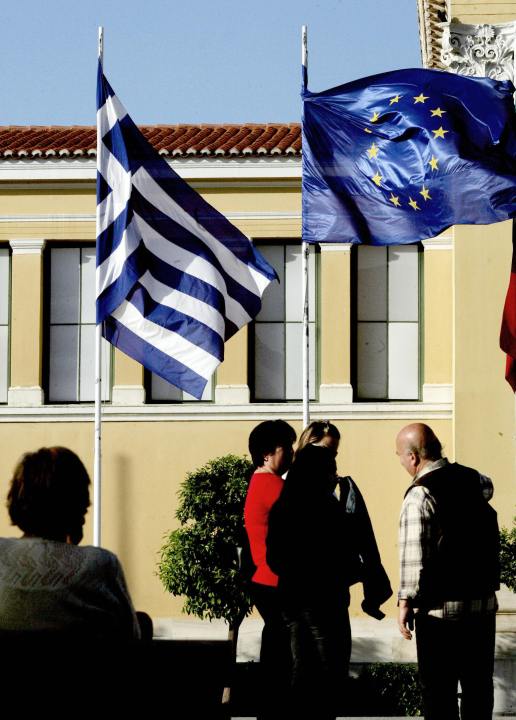 In Hollywood, there is an award called the Golden Raspberry or Razzies. The opposite of the much-desired Oscar, the Razzies go to those who have most dishonoured the acting, screenwriting or song-writing profession in the past year.
In Hollywood, there is an award called the Golden Raspberry or Razzies. The opposite of the much-desired Oscar, the Razzies go to those who have most dishonoured the acting, screenwriting or song-writing profession in the past year.
If European foreign policy had a version of the Razzies, this year’s award would go to Greece for it attempts at destabilising neighbouring Macedonia and countering the EU’s Balkan policy.
Since the break-up of Yugoslavia and the founding of Macedonia, Greece has had an uneasy relationship with its neighbour. At NATO’s Bucharest Summit, Greece vetoed Macedonia’s bid to join the Alliance, because of an unresolved dispute over its name.
The Greek government objects to its neighbour taking the same name as a northern Greek region. It argues, rather absurdly, that the name implies a territorial claim on the region.
Two years of mediation by a UN envoy has achieved little and at a meeting of European leaders, Greece upped the ante by making a resolution of the name-dispute a pre-requisite of Macedonia’s accession to the EU even though Macedonia was granted candidate status years ago.
An earlier version of Council conclusion said that EU leaders were “looking forward to the opening of the accession negotiations with FYROM by the end of this year.” But the text was changed under Greek pressure, supported by the French.
It now stresses that “maintaining good neighbourly relations, including a negotiated and mutually acceptable solution on the name issue, remains essential” for Macedonia’s EU integration.
On the ground in Skopje, Greek policy is threatening to push Macedonia’s two peoples – Slav Macedonians and Albanians – further apart. Much progress has been made since 2001, both in stabilizing the region and in carrying out an agreement that gives greater rights to ethnic Albanians, who constitute almost 25 percent of Macedonia’s population of 2.2 million, and to other minorities.
But the name-dispute threatens to reignite problems. For most Slav Macedonians—already resentful of how little reward they received for supporting NATO’s Kosovo campaign in 1999 and having to house the mass influx of Albanian refugees– the name of their country is a key issue. But for ethnic Albanians, however, the name of the country is far less important than EU or NATO membership. The implicit bargain behind the Ohrid Agreement was that Macedonia would be a better home for ethnic Albanians than Kosovo or even Albanian proper. With Albania in NATO, Macedonia’s EU and NATO accession blocked and the international community focused on developing Kosovo this deal may not be as attractive as it once was.
Greece cannot be blamed for all of Macedonia’s problems. But it is undeniable that Greece’s vetoing of Macedonia’s NATO membership has pushed ethnic Macedonians and Albanians further towards nationalism.
The recent violence-marred election saw a surge of support for the nationalist VMRO government and their Albanian counterparts DUI, led by former guerrilla leader Ali Ahmeti.
The name-dispute has also given the government of Prime Minister Nikola Gruevski the excuse it needs to give up trying to get the country into the EU and NATO during the next four years. Instead, the government has channelled its energy into fiddling with the country’s constitution and a Madam Tussaud-style museum to honour Macedonia’s historical heroes which won’t wax lyrical about any Albanian Macedonians.
Economically, the World Bank says the Macedonia “has come a long way in its transition from a centrally-planned to a market economy”. The economy is projected to grow by 5.5 percent in 2008, reflecting stronger domestic demand. But the Bank adds that “reform efforts have been lacklustre at certain times and frequently interrupted.”
Without the goad of EU integration, it is hard to see how Skopje will ensure sustainable reforms. Corruption, too, remains a problem, as does the weakness of the judiciary, police and the public administration.
But these problems are exacerbated by the name-dispute. To avoid any violence, Western diplomats pushed Nikola Gruevski to form a government with Ali Ahmeti’s party. But it is unclear how long this coalition government will last.
The Greek government’s policy will ensure Macedonia’s path to the EU and NATO remains blocked, which, in turn, will continue to exacerbate tensions between the Macedonian and Albanian communities. Disputes that could otherwise be solved may be allowed to fester. Key issues, like reform of the country’s public administration, may give way to nationalist pet-peeves.
But Greek policy raises questions not only of Athens respect for the EU’s long-standing Balkan policy and the stability of Macedonia but about the integrity of the EU’s enlargement process. If one country can change the terms of the Union’s enlargement process – incorporating bilateral disputes into the EU’s conditionality – then how can candidate countries know what to expect? In sum, a suitably appalling performance by Athens which deserves the EU foreign policy version of the Razzies.







Comments